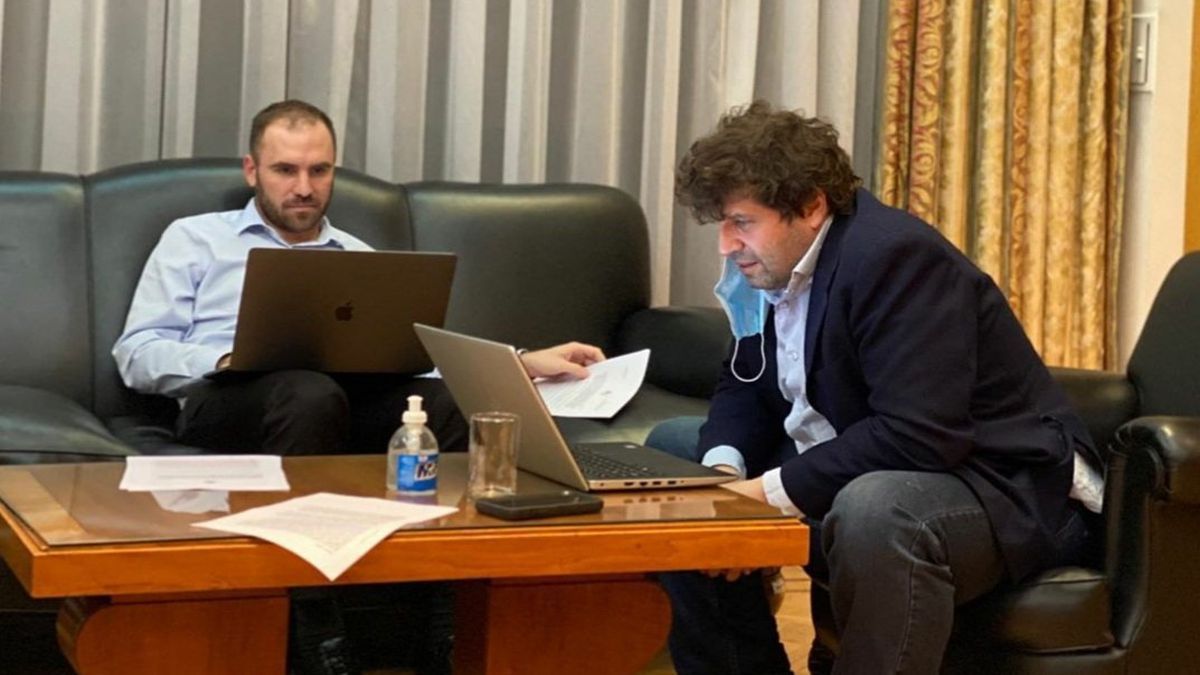Basically, the parties will talk that there will be in the coming months a constant commitment to monitor the international economic effects of the Russian invasion, and three key chapters regarding the country: income from the increase in commodities, indirect inflation that this generates and the rise in fuel prices.
The mention of the Ukrainian situation will be within the chapter where Argentina and the IMF mention the effects of the pandemic not yet measured in the international economy, the upward movements in interest rates that, it is ruled out, will be executed during this year and the effects of an international crisis in the economies of Brazil, the US, the European Union, China and other important partners of the country, to which most of the Creole exports are destined.
The problem of the appearance of the armed conflict in Ukraine in the negotiations between Argentina and the IMF, is the deepening of the debate between the parties in one of the fundamental chapters of the negotiated Extended Facilities. According to the financial institution, the rise in the price of gas that will arise after the invasion could stabilize at current prices for a long time of more than four or five months, generating a demand for foreign currency of no less than US$1. 000 million extra for the country; which would obviously put pressure on the public coffers and the demand for foreign exchange during 2022. The Fund believes that the money that the country should have to pay for the increase in the fuel import bill, mainly gas, is not (and will not be) available and it will put extra pressure on public spending and the availability of dollars. Consequently, the government should respond with an increase in gas rates, both for industry and residential users; which, in turn, would further complicate the debate between local negotiators and the IMF on the degree of subsidies that will be implemented this year.
The dispute is also advancing on another complicated terrain: the ruling party’s own internal dispute, on how much the rates should rise this year and next. And if the plan for an increase of less than 40% that the national government is applying in coordination with Kirchnerism is still sustainable. Derived from all this, the Fund now questions more vehemently the tacit agreement that had been closed between Julie Kozack and Luis Cubeddu, and the great goals of growth and fiscal deficit of Extended Facilities Reloaded. The American and the Venezuelan never believed the Minister of Economy, that the country could grow between 3.5 and 4.5% this year, which would allow the country to achieve a deficit of less than 2.5% per year for the current year .
According to the Fund’s vision, the country would not have the dollars to guarantee this growth during 2022. However, in the partial agreement of January, the Deputy Director of the Fund for the region and the person in charge of the agency’s mission in Argentina, accepted the numbers and percentages raised from the Palacio de Hacienda; although they left the door open for the renegotiation of internal policies to be applied if by the middle of the year the deficit and growth projections do not line up with what was promised. Now, according to the IMF’s vision, the new gas import account complicates Guzmán’s projection even more; with which the country is warned that the Ukraine crisis is a new front that would undermine the Argentine commitment.
Treasury has a different calculation. For the Government, there will obviously be an increase in international fuel import prices; but this will not exceed $500 million. According to official estimates, this year there will be an increase in gas production in Vaca Muerta, which will allow the country to increase supply and meet at least part of the growing demand for gas.
It is also stated in Buenos Aires that, although the increase in gas prices is a fact, so is the increase in the value of the commodities that Argentina exports, starting with soybeans and continuing with the improvement in corn prices. and wheat. It is even stated that the values of gas could be rearranged if the Ukrainian situation improves, but a drop in the oilseed could take longer to fall. The pictures on the historical movements would demonstrate this. According to local data, in the worst case, there would be a tie between the numbers of profits and losses due to increases in the prices of favored local exports, against the increase in expenses due to the rise in gas values. But, it is speculated in Buenos Aires, the final account will most likely show some kind of profit.
For Argentina, the problems derived from the Russian invasion of Ukraine would impact the local economy from another plane. The vision of the Treasury is that the increase in the international prices of corn and wheat will result in greater pressure on local inflation.
It is the full conviction of the national administration (at this point, shared with Kirchnerism) that the indomitable local inflation is “multi-causal” and that the upward trend in world prices of the inputs with which food is produced is one of the predominant factors. . Consequently, it is considered in Buenos Aires, the Fund should be more flexible when evaluating the country in compliance or not with the inflationary goals agreed in the primary agreement in a cap of 48% final for 2022.
Source: Ambito
David William is a talented author who has made a name for himself in the world of writing. He is a professional author who writes on a wide range of topics, from general interest to opinion news. David is currently working as a writer at 24 hours worlds where he brings his unique perspective and in-depth research to his articles, making them both informative and engaging.




